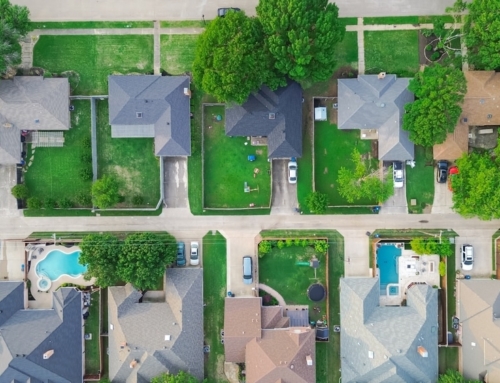According to a recent Rent.com survey, 69 percent of families have moved at least one time during their children’s life.
Eighteen percent have moved at least three times.
When it comes to households, two things have been happening during this recent Great Recession.
First, folks aren’t moving. According to census data, fewer people have moved in the last five years than in prior years.
Second, the number of households is shrinking as families lose their homes and move in with other family members or friends, a practice sometimes known as household sharing.
The total number of households and the percentage that move each year are important factors in your decision to rent or buy your next home.
The shrinking number of households means that there are fewer buyers and renters in many locations. That could mean you’ll pay less to buy or rent. But the ratio of renters to buyers won’t be the same in every neighborhood. If a neighborhood has a lot of foreclosures, you might be hard-pressed to find a rental (because banks don’t want to be landlords), but you might get a great deal on a foreclosure as a buyer. On the other hand, fewer renters could mean you can rent an amazing house or condo for very little money each month.
The fact that people aren’t moving as often as they were means you might have trouble finding property to rent in some neighborhoods.
What other factors are important in this decision to buy or rent?
You should buy your next home if
- You’re settled in your career. You need to have a job that allows you to pay the bills, and then some. You should feel fairly certain that you’ll be employed for the foreseeable future.
- You know where you want to live. In other words, you can look out over the next five to seven years and predict what neighborhood amenities and location you’ll want or need.
- You’re in excellent financial shape. You have money in the bank, your debts are small and manageable, and you have extra cash for closing costs, a down payment, and the reserves your lender will require.
- You have great credit. You’ll need a very good credit score to qualify for a loan in today’s tight credit market.
- You expect property values to rise in your neighborhood of choice. If you have enough cash on hand to make improvements to a fixer-upper and build in value, it might make sense to buy.
You should rent your next home if
- You’re not sure where you want to live. If you might change neighborhoods or states in the next couple of years, you’ll want the flexibility that renting provides.
- Your personal circumstances might change. In other words, if you’re single but want to get married, or if you’re married but want to have children, you might not be ready to commit to staying put for the next five to ten years.
- Your job isn’t that secure. Unemployment is still high, and first-time filings for unemployment are still well above where they should be in order to bring down the unemployment rate. If you’re not sure about your job, rent your next home rather than taking on a mortgage.
- You don’t have good enough credit. If, for whatever reason, you’re one of the 25 percent of Americans whose credit score is 550 or less, your credit won’t be good enough to buy a home these days. Take a look at the stories in our credit section.
- You can get a much better deal financially. Owning a home isn’t cheap. You’re responsible for maintenance, real estate property taxes, mortgage payments, homeowner’s insurance, and other costs. With so few renters and so many homes for rent, rental prices have dropped significantly. You may be able to rent a home in your neighborhood of choice for far less than owning a comparable home.





